
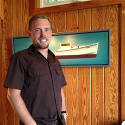
Archaeologist and Logistical Coordinator, Lighthouse Archaeological Maritime Program
Brendan Burke joined the St. Augustine Lighthouse & Museum research team (LAMP) in July of 2007. As an archaeologist and science diver for LAMP, Brendan has extensive experience with the maritime history of the southeastern United States. In 2013, he co-authored Shrimp Boat City, a book highlighting the origins and growth phases of commercial shrimping and trawler building in northeast Florida.
Originally from Amelia County, Virginia, Burke received a bachelor’s degree in anthropology and history from Longwood University in 2003. In 2006, he graduated with a master’s degree in anthropology from the College of William and Mary in Williamsburg, Virginia. Since 2007, Burke has worked with a number of projects involving the location and excavation of historic shipwrecks and maritime landscapes. He has been part of the excavation team for the Storm Wreck, a 1782 Loyalist transport from the end of the American Revolution, an ongoing LAMP project since 2010.
Burke has worked throughout the U.S. Southeast and Ireland and holds a captain’s license from the U.S. Coast Guard. During the French Fleet project, Burke will serve as primary cruise captain aboard the R/V Roper, the operations platform for survey and target testing.
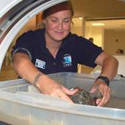
Archaeological Conservator, Lighthouse Archaeological Maritime Program
Starr Cox joined the St. Augustine Lighthouse & Museum research team (LAMP) in March 2010. As the lead conservator for the museum, she has worked extensively to preserve artifacts, including a cannon and carronade recovered from a 1782 British Loyalist shipwreck off the St. Augustine coast.
Although she was born in Virginia, Cox was raised in the greater Kansas City area. She earned her bachelor’s in anthropology and archaeology from the University of Kansas in 1997. In 2008, Cox received her master’s in nautical archaeology, as well as certificates in historical preservation and archaeological conservation, from Texas A&M University. Her thesis focused on the experimental composite conservation of several Civil War-era Enfield rifles.
Cox continued to focus her research in archaeological conservation by working at Texas A&M’s conservation research laboratory for five years and also by participating in an archaeological conservation internship with the Museum of Tropical Queensland in Queensland, Australia. Her maritime archaeological experience has taken her around the world to work in many countries including Portugal, the Dominican Republic, and Indonesia.

Director, Center for Historical Archaeology
Dr. John de Bry is the Director of the Center for Historical Archaeology and is an experienced French and Spanish language paleographer as well as a historical and maritime archaeologist. Dr. de Bry has extensive experience working on French colonial sites in the U.S. and Caribbean, including the 1565 shipwreck survivors’ camp (Armstrong site) and La Belle (1686). Dr. de Bry, who is serving as Co-Principal Investigator, has conducted a significant amount of archival research in France related to the Ribault fleet, and will serve as the project’s primary French language archival researcher in addition to participating in fieldwork, analysis, outreach, and other aspects of the project.
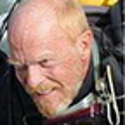
Board Member, Institute of Maritime History
Howe is a retired U.S. Navy Commander who has an extensive background in both admiralty law and maritime archaeology. He currently serves on the board of the Institute of Maritime History and is the regular captain of the research vessel Roper. He will serve as captain for one cruise during the diving phase of the fieldwork and also participate as an archaeological diver.
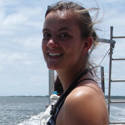
Archaeologist, Lighthouse Archaeological Maritime Program
Olivia McDaniel joined the St. Augustine Lighthouse & Museum team (LAMP) in 2012 as a student at LAMP’s Underwater Archaeology Field School. After returning the following two seasons as a Field Supervisor for the same field school, McDaniel officially joined the LAMP team as an archaeologist in July 2014.
Originally from Council, Idaho, McDaniel attended the University of Idaho, where she earned a bachelor’s in anthropology and a minor in history in 2013. Her undergraduate studies emphasized the historic archaeology of the Inland Northwest, and she spent her summers working as an archaeology tech for the Forest Service in northern Idaho.
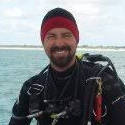
Volunteer Archaeologist, Lighthouse Archaeological Maritime Program
Brian has been a part of the St. Augustine Lighthouse & Museum team (LAMP) team since 2011. A native Floridian, he grew up in the St. Augustine/Jacksonville area. Brian earned his BA in History as a cadet at The Citadel, The Military College of South Carolina. He is completing his MA in Maritime Archaeology with Flinders University in Adelaide Australia. His thesis work is focused on identifying a shipwrecked 18th Century vessel off the historic St. Augustine inlet we only know as the "Storm Wreck," site 8SJ5459, through matching artifactual evidence with archival research. Brian is fascinated with the colonial period of American history and has used his expertise in archival research to assist LAMP projects as well as in the professional archaeology field as Project Historian. He has worked on submerged archaeological sites in both the United States and South Australia. Brian’s current role within LAMP is Senior Field Supervisor, assisting in fieldwork, conservation, and diver instruction.
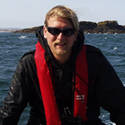
Director of the Lighthouse Archaeological Maritime Program, Lighthouse Archaeological Maritime Program
Underwater archaeologist Chuck Meide joined the Lighthouse Archaeological Maritime Program (LAMP) team in March 2006. Born and raised in the coastal town of Atlantic Beach, Florida, Chuck grew up with salt water in his veins. His love of the ocean and its historical secrets led him to pursue Bachelor’s and Master’s degrees in anthropology with a focus on underwater archaeology at Florida State University (FSU).
At FSU, Chuck had the opportunity to participate in and supervise a wide variety of maritime archaeological projects, including investigations of submerged prehistoric hunting and occupation sites and the wrecks of 16th- and 17th-century Spanish galleons, a 1622 Spanish patache or dispatch vessel, a Confederate ironclad and Union supply ships, the earliest Western river steamboat excavated by archaeologists, and La Salle's ship la Belle lost in 1686.
He has worked on maritime archaeological sites throughout Florida and also in Texas, Alabama, Mississippi, Virginia, Vermont, Bermuda, a number of Caribbean islands, and Ireland. He is currently completing his PhD research through the College of William and Mary in Williamsburg, Virginia. Chuck is also an active NAUI scuba instructor, and taught basic and scientific diving courses at the FSU Academic Diving Program from 1992 to 2000.
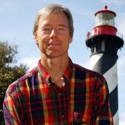
Resident Marine Technician - Scripps Institution of Oceanography
Dr. Sam Turner joined the St. Augustine Lighthouse & Museum research team (LAMP) in March 2006. His survey, research, and dive work with LAMP has been a crucial element to many LAMP projects. He also heads the LAMP Boatworks, a program dedicated to keeping alive the ancient art of traditional wooden boatbuilding. Dr. Turner is a published scholar, adjunct professor at Flagler College, and expert on the historic journey and discoveries of Juan Ponce de Leon.
His interest in history began while traveling extensively in South America with his family as a child. Dr. Turner spent many years living in both Argentina and Puerto Rico where he became fluent in Spanish. He received a bachelor’s degree in history as a social science from Antioch College where he began to acquire his specialized knowledge of the early Spanish Colonial period in the New World. Dr. Turner earned his master’s in nautical archaeology at Texas A&M University and received his Ph.D. in Spanish and Spanish American studies from King’s College of the University of London in 1999.
Dr. Turner has worked on shipwrecks and terrestrial maritime sites in the Middle East, Europe, Latin America, and the United States. He also conducts extensive research in numerous archives and repositories in Europe and the United States, working with both English and Spanish documents.